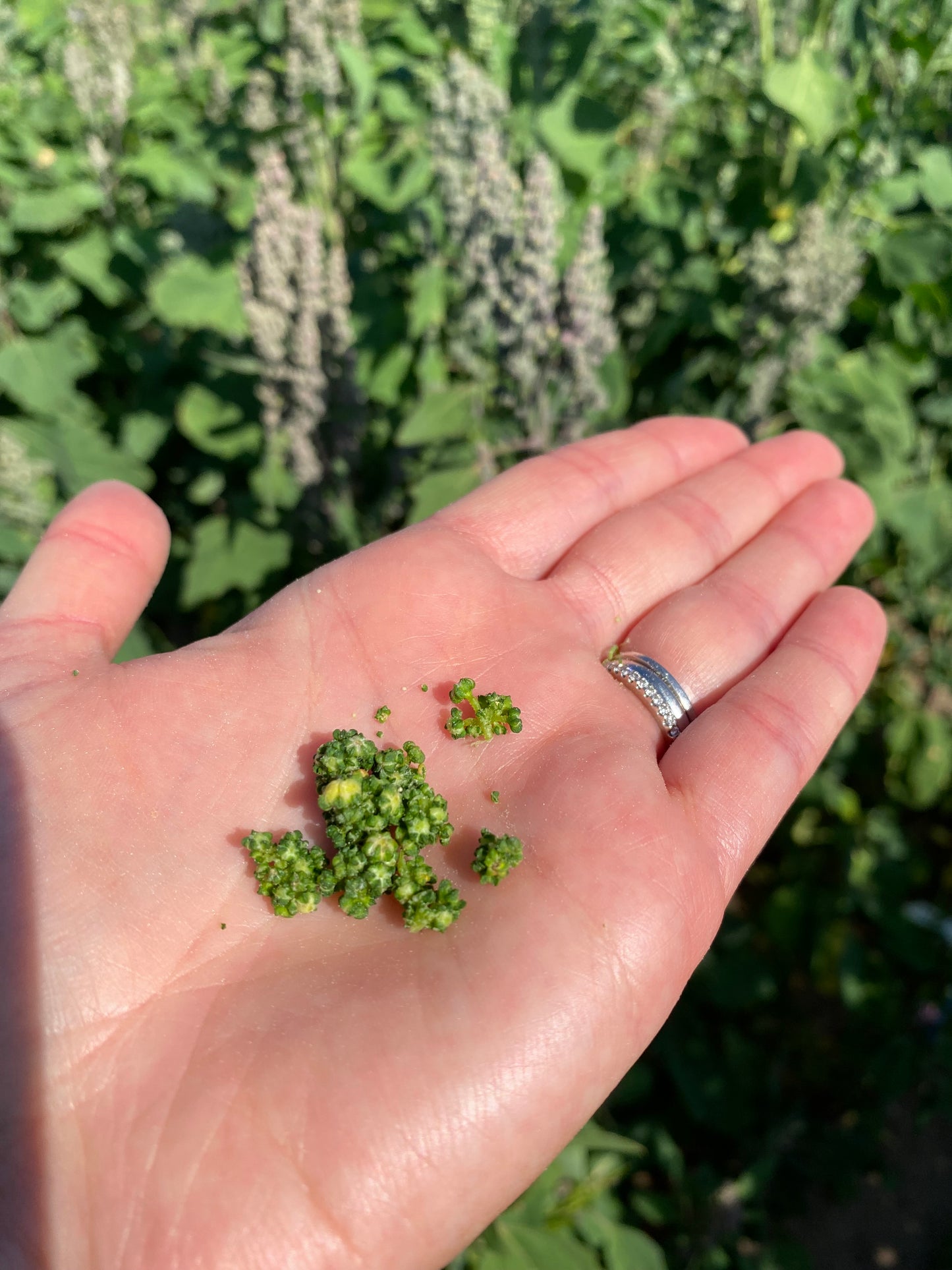
The germination is the biological process of a plant life. Indeed, to reproduce they produce seeds that contain an embryo (the future plant) and reserves that are essential in the early stages of growth. After their production, the seeds get naturally in a state called “dormancy”, life turns into a breaking time that allows the seeds to face the bad season in complete safety. Like hibernation with animals! The germination is, in fact, the stage at which the seed passes from this state of latency to a resumption of life. The germinated seeds are small shoots in the first stage of germination, we distinguish the very young plant but also a rest of the initial seed! These are increasingly known and are being talked about in today’s organic and vegetarian diet. But what are their benefits and why are there more and more seeds-addict? This is what we sought to understand!
But first, how do we find sprouted seeds and in which form?
You can buy them already ready to use in the supermarket or in organic food shops for example but the most profitable and playful still remains to make them sprout yourself! Here again, several possible methods exist, they can be germinated with ordinary kitchen utensils, practice when you do this occasionally … But for the supporter of this new food, it is still best to have its own propagator, it will facilitate the rinsing of the seeds! It exists for all tastes with different sizes and shapes. In any case, very specific conditions are necessary for a seed to germinate and certain factors such as moisture, light or oxygen quantity must absolutely not be neglected because they will generate the phenomenon. So those are the ones we will be looking at throughout the process.
How do we do to germinate seeds?
On our side we decided to use the method of “getting by” to germinate quinoa. It could not be easier! Soak the dry seeds with a good amount of water in a hollow dish. Water is essential because to turn into dormancy the seed first completely dehydrated, the fact of immersing it in the water allows its rehydration and the resumption of life. Then cover with a flat plate, then store it all in a cool room for 12 hours (so a whole night). The next day, to the delight of young and old, small germs will have appeared, the water will be removed as much as possible using the flat plate, then rinse the seeds by taking care to their fragile germ. After rinsing ensure that the seeds are as dry as possible, cover with the flat plate again and then store for about 6 hours, the germs will continue to grow. Rinse again and it’s ready! You can directly consume them or repeat the previous operation if you want the germs to grow a little bit more. It’s important to note that when germinating seeds, it is essential to ensure a certain hygiene: wash your hands before handling and try to remove as much water as possible between rinses and after soaking because this wet atmosphere with stagnant water is conducive to the formation of ugly moulds. Do not consume the seeds under any circumstances if you see some!
The technique remains substantially the same with any kind of seed, only the soaking times and the number of rinsing can vary from one species to another one.
Besides, by speaking of other species, can all seeds germinate and are they all good to consume? A priori, all the seeds, whatever the species or the family to which they belong, are likely to germinate. Nevertheless, for consumption and human food, we will prefer seeds sprouted cereals, legumes, oilseeds or plants (vegetables, salads …) which are usually used in cooking. There are, however, a few exceptions, as not all sprouts are suitable for consumption, as is the case with tomatoes, aubergines and rhubarb, for example, whose germinated seeds are toxic.
You’re going to tell us that all this is very interesting, but what you would like to know more is, undoubtedly, what are the benefits of these new foods?
Well, the nutritional benefits of sprouted seeds are multiple and their integration into a diet is a real asset! The germination gives these seeds a real nutritional power making them more powerful than any vegetables or cereals … We said, when germinating, the seeds take life gradually and grows. The stored reserves become bioavailable, meaning that there is a release of various vitamins, proteins, trace elements, essential fatty acids and minerals. But that does not end there as they also have an antioxidant role (you know, that allow the cells to stay young longer), they lower cholesterol and fat storage and are also high in fibre while having a low glycemic index. The germinated seeds actually have the same benefits and virtues as the vegetables, but their smaller volumes make them more interesting (they can be consumed in greater quantity) since all the super nutrients that we have mentioned are more concentrated. All this explains why they are easily assimilated by our body and that they are filling while bringing few calories. In short, a real cocktail of good things and a real cure of youth for the body
You are surely wondering, how to consume these little wonders to integrate them into your daily menus? Well, it’s very easy, they will accompany your salads very easily, will slip perfectly into your sandwiches, will invite in your omelettes and will agree without problems with your soups and gratins!
